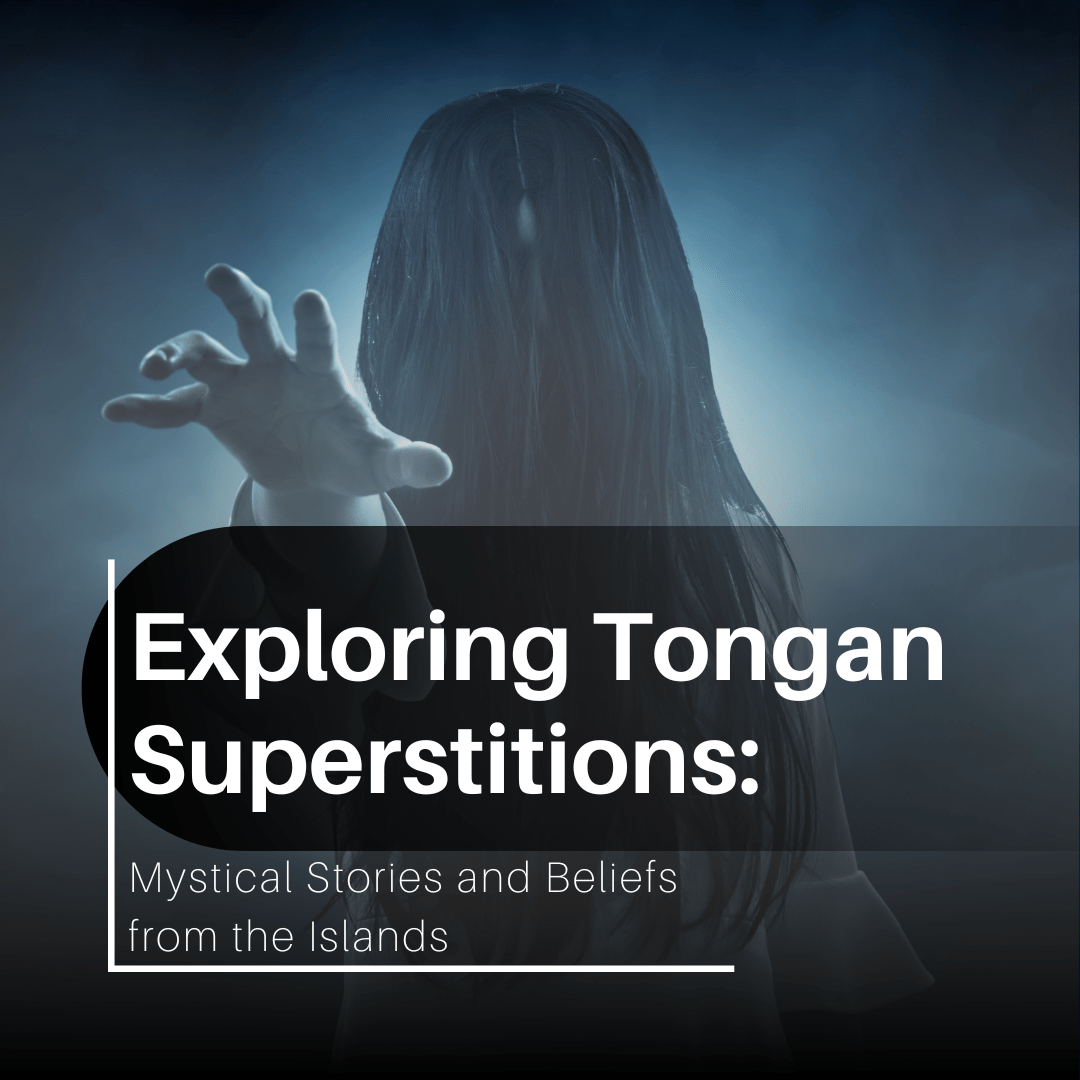
Exploring Tongan Superstitions
Mystical Stories and Beliefs from the Islands
Tonga, a small Polynesian kingdom rich in tradition and culture, has its own set of superstitious beliefs that have been passed down through generations. These stories, often rooted in the spiritual connection Tongans have with their ancestors and the land, reveal a mystical side of Tongan culture that many may not know. This post will dive into some of the most intriguing Tongan superstitions and the stories behind them, shedding light on a world where the unseen plays a significant role in everyday life.
1. The Tale of the Night Marchers (Fehikitaki’a)
In Tongan culture, there is a belief in “fehikitaki’a,” or night marchers—spirit warriors who roam the islands at night. It’s said that these warriors are the spirits of ancient Tongan soldiers who died in battle, and they march through the night, protecting sacred sites and punishing those who trespass.
- The Warning Signs: If someone hears drums or chanting late at night, it is believed to be a warning to stay indoors. If you see the marchers, it’s said that you should lie face down and avoid eye contact, as disrespecting these spirits could bring harm or bad luck.
- The Lesson: This belief reinforces the idea of respecting sacred sites and the spiritual energy that surrounds them. It’s a reminder that the land is not just physical but also deeply spiritual and protected by ancestral forces.
2. Avoid Whistling at Night
One of the most common superstitions in Tonga is the warning against whistling at night. According to traditional belief, whistling after dark attracts malevolent spirits (known as "tevolo"). These spirits are thought to follow the sound, leading them straight to the person who is whistling.
- Story Connection: Many Tongans share stories of people who whistled at night only to experience eerie phenomena such as hearing footsteps that weren’t their own or feeling a sudden cold chill.
- Cultural Impact: This superstition may seem simple, but it speaks to the broader respect Tongans have for the spirit world and their belief in its proximity to the physical realm, especially at night.
3. The Mysterious Hala Tu‘i (Royal Road)
The Hala Tu‘i, or the “Royal Road,” is an ancient pathway that is believed to be the route used by Tongan kings and their entourage of spiritual protectors, or “kauhala‘uta,” when traveling between villages. This pathway is considered sacred and is said to be guarded by the spirits of past kings.
- The Rule of Silence: Tongans believe that one should remain quiet and respectful when passing near this pathway, especially at night. Those who do not show respect may encounter the spirits of the kings or suffer bad luck.
- A Haunting Encounter: There are tales of people who, unaware of the pathway’s significance, experienced strange occurrences like hearing chants or drums as they walked past. Others claim to have seen mysterious shadows moving swiftly along the path.
- Respect for Royalty and Tradition: This superstition underscores the deep respect for Tongan royalty and the belief that the spirits of past leaders still watch over and protect their kingdom.
4. The Story of the Tevolo Tree
Certain trees in Tonga, particularly those that are old and large, are believed to be inhabited by tevolo (spirits or ghosts). These trees are considered sacred, and disturbing them—whether by cutting them down or even touching them—can invite misfortune.
- A Forbidden Spot: In some villages, these trees are marked, and locals warn against approaching them, especially at night. People tell stories of strange lights, whispers, or even laughter coming from these trees when they are alone.
- The Ancestral Connection: The belief in spirit-inhabited trees serves as a reminder that nature is interconnected with the spiritual world. Tongans believe that their ancestors’ spirits sometimes dwell in these trees, watching over their descendants and maintaining the balance between the living and the supernatural.
5. Evil Spirits at Sea: The "Tamasi‘i Moana" (Boy of the Sea)
Tonga, surrounded by the vast Pacific Ocean, has its share of sea-related superstitions. One such belief is in the presence of the “tamasi‘i moana,” or the boy of the sea. This spirit is said to lure sailors or swimmers into dangerous waters, leading to their disappearance.
- Warnings for Fishermen: Fishermen are cautioned to avoid certain areas known for strong currents, as these are believed to be haunted by the tamasi‘i moana. If someone feels an unexplained pull or hears a child’s laughter while at sea, they are advised to leave the area immediately.
- The Sea’s Mystical Power: This superstition highlights the reverence Tongans have for the ocean, viewing it not just as a source of sustenance but also as a domain of spirits that must be respected.
Conclusion: The Supernatural Legacy of Tonga
Tongan superstitions are more than just eerie tales; they are a reflection of the deep connection Tongans have with their ancestors, their land, and the spiritual world. These beliefs and stories are passed down through generations, not only to caution but also to remind people of the power and presence of their history. For many Tongans, these superstitions are a way of life, teaching respect, humility, and awareness of the unseen forces that shape their world.
Related Posts

Bougainville Belongs Here
At Nesian Kulture, we include the Bougainville flag because we honour identity beyond politics. Bougainville may not be an independent...
Read More
ONE FAMILY. MANY ISLANDS — THE STORY BEHIND THE WORDS
Discover the true story behind Nesian Kulture’s tagline “One Family. Many Islands.” — a movement born from Susan’s childhood as...
Read More










